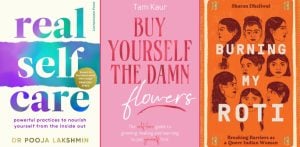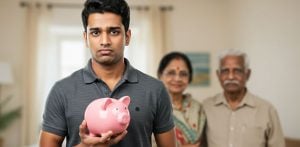"it was kind of downhill from there."
Since March 2020, many families have been living in close quarters for over a year without any form of outside relief. Young people have found themselves having to move back in with their Asian parents.
What effect has this had?
Tensions and increased emotional abuse have heightened since the first lockdown began in March 2020.
Uncertainty surrounding job security, finances, education and health has exacerbated the hardships when living with parents.
Undoubtedly the inability to effectively communicate, explore feelings and express oneself are contributing factors to rising tensions.
Refuge has reported a 60% increase in domestic abuse calls and online requests since March 2020.
These risks were not unique to the UK and were reported to be affecting people worldwide.
Mental Health
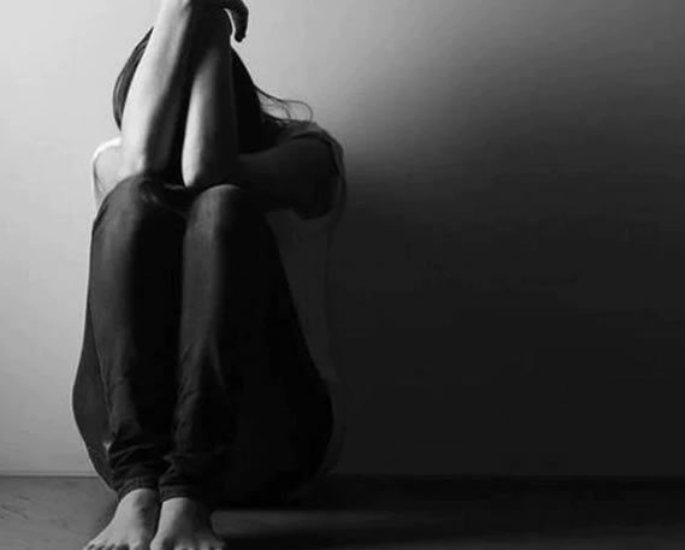
Lockdown has contributed to the sense of loneliness and isolation. People may feel isolated when living with their Asian parents.
The difference in opinions, being overbearing and a lack of social interaction can cause tensions to rise in households.
Ravinder Samuels, a therapeutic counsellor (CPCAB) from Bedfordshire, noted how lockdown has increased uncertainty and confusion. She reminds us that “we all value being heard”.
Ravinder goes on to discuss the daily walks that were promoted by the UK government. It is important to escape the four walls and sense of being trapped.
Asian parents and grandparents are usually used to open space and fresh air, particularly those who are from the motherland. Being trapped inside for months would inevitably affect them negatively.
In turn, this can result in frustrations being taken out on children.
Michelle* aged 18 lives with her mum, dad and sister and has personal experience regarding such frustrations.
She describes her experience living with her Asian parents during the lockdown as being “very up and down”. She went on to say:
“I got to see what my parents were really like and then it was kind of downhill from there.
“Being stuck inside with them was horrendous, my dad was just loud, careless and lazy.”
The relationship between Michelle and her dad has deteriorated over the pandemic period:
“My relationship with my parents was practically nonexistent before lockdown and during lockdown it worsened.”
Mid-pandemic, Michelle’s father even tried to kick her out of the house.
Naturally this caused great distress for Michelle and worsened the divide between the pair.
Intense Pressure

Deep-rooted familial issues have boiled to the brim with many Asian parents during the pandemic.
Seema* was forced to move into her grandmother’s house in the UK after working abroad. She recalls how difficult the move was:
“I knew I wasn’t wanted at the house. It’s uncomfortable and awkward every day – I can’t wait to go to work just to get out of that environment.”
Meeting basic needs is imperative to maintaining a strong mental state.
This includes responding to basic biological needs – being at the right temperature, feeling warmth and comfort and more.
When these needs are not met and you feel unwanted, it can cause excessive stress, low moods and even depression.
Meena*, a Masters student at Coventry University, discussed how her move from student accommodation back to her parent’s house has impacted her mental health.
She said: “I feel like they don’t understand how much pressure I am under with my university work.
“Just because I am physically at home, they think I am on a holiday and expect me to cook and sit with the family at all times.
“Then they wonder why we argue when I say I don’t have the time.”
Meena goes on to say how this has increased her stress levels:
“I am juggling being a good daughter and a good student.
“I don’t even have space to do my work – my siblings run into my room, my parents are loud, and I’m called to do housework every five minutes.”
It is clear to see that a breakdown in communication is occurring.
Speaking Out
Living with Asian parents during the pandemic has seen an increase in emotional and verbal abuse.
Ravinder Samuels stresses the importance of seeking support in cases like this. Speaking to someone is the first step.
“Check in on those who might be vulnerable by text or call – keeping the lines of communication open affords them opportunity to speak when they are ready.
“Depending on age, there are freephone lines – Childline, NSPCC, Age UK, Samaritans.”
Seeking support outside of the home is still considered taboo in South Asian communities.
So, the use of language and how issues are raised is important.
Help can be perceived as a threat within Asian households.
Tensions Rising
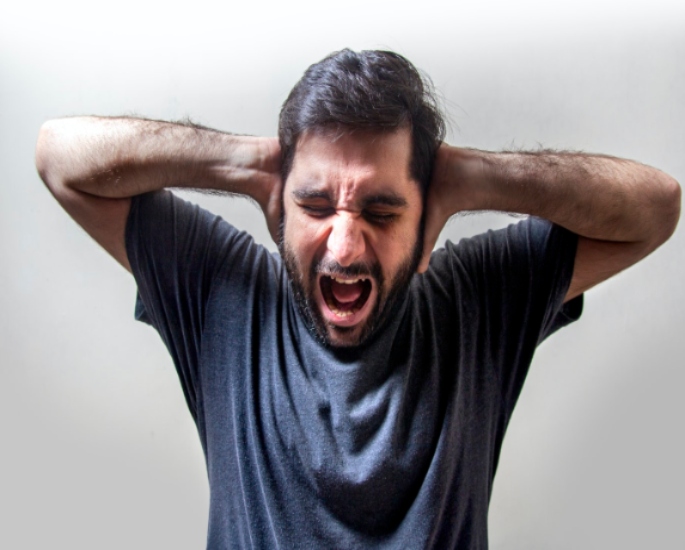
Differing beliefs and mindsets living under the same roof without escapism can act as a catalyst for tension.
For Michelle, her lack of enthusiasm for entering a desirable profession for her Asian parents (such as a lawyer or doctor) caused strain.
She said: “I’m the complete opposite to what they wanted in a daughter and I think they resent me for it – my main goal in life is to be happy, not to make loads of money but they don’t understand that.”
Tensions began to increase when her dad’s friends told him they kicked their children out when they were 18.
Michelle noted how these were Caucasian people and she didn’t expect this in her Asian household. This was because of cultural differences in family dynamics.
She says: “Although it wasn’t much of a shock, I still felt betrayed by him and just uncomfortable in his presence; it was the confirmation I needed that my dad never truly loved me or accepted me as his child.
“The tension in the house was so high that I left and stayed with my auntie for a week.
“I was constantly walking on eggshells around my dad and I was anxious all the time.”
“My mum had threatened to leave my dad if he tried to kick me out so my dad backed down and let the matter rest, I came home, and he wouldn’t speak to me for a couple of weeks.”
She feels as though her relationship with my dad has been damaged beyond repair.
Strained Relationships
Similarly, 22-year-old Saffron*, who lives with her mum and stepdad feels their relationship is more strained. Unlike Michelle however, these are based on smaller issues.
Due to the pandemic, silly issues are more prominent.
She explained: “Even though I am 22 they often treat me like a child rather than an adult who can govern her own life.
“I didn’t care about it much before because I could just go out and meet my friends for a coffee but now, I feel stuck.”
Saffron finds that writing about her day in a journal can put minor issues into perspective.
Ankit Sheth, a consultant based in Washington DC also advocates for the power of reflection.
Ankit believes that writing in the journal his therapist gave him has served as a private conversation space.
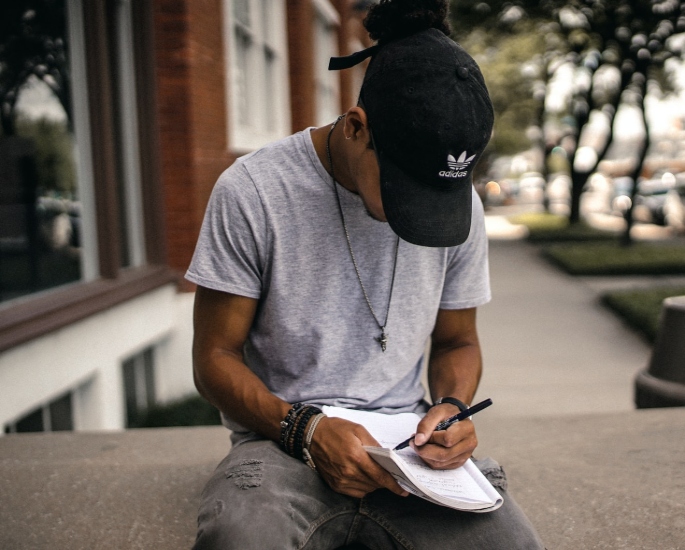
Navigating the Physical Space
It is important to understand that spending 24/7 together is likely to put a strain on any relationship. Maintaining some degree of personal space is critical throughout a lockdown.
Time to ourselves allows people to rest and recharge.
This can be challenging in Asian households where privacy is often overlooked.
In normal daily life, we crave this space when we go to the gym, head to work, grab a coffee or decompress the week with friends.
With many of these vital moments unavailable at the moment, it’s important to find this personal space in alternative ways.
For Michelle, the lack of outside space has affected the relationship with her Asian parents.
Luckily, she has her own room which means she has her own private space to use as a sanctuary.
However, knowing that everyone was in the house felt “very restricting”, she stayed in her room. She even began taking up bad habits to cope like smoking.
In addition, Michelle found the noise levels in the home was extremely frustrating.
For Saffron, her house is quite small and she equally finds herself in her room quite a lot.
But what if you don’t have your own room to escape to?
Many people share rooms with siblings in Asian households which can feel suffocating.
This is why having your own space is key.
Creating your own Privacy
The Chelsea Psychology Clinic explores a few different ways to create your own space when there is limited privacy in your home:
- Create a sanctuary – The clinic says it is easier to prioritise alone time if there’s a designated space to do it. This doesn’t need to be a whole separate room, even just a corner or a countertop will suffice.
- Sit in the garden or near a window – Research shows that looking at nature for 40 seconds can trigger the brain into a calmer state.
- Make the most of shower or bath time– Try taking a mindful shower or bath instead of jumping in and out. Use your senses to fully engage with the sounds and fragrances.
- Tell your family, friends or partner you’re off-limits – whether it’s an hour or just 10 mins, say that you don’t want to be interrupted.
The Benefits of Therapy
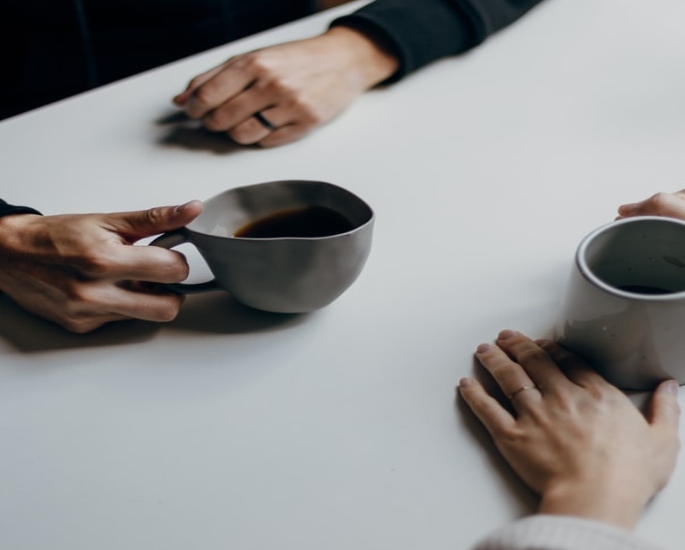
Young people are starting to understand the benefits of therapy.
This is despite the stigma of using therapy as a coping mechanism in the South Asian community,
Michelle feels that being stuck at home with Asian parents has shown her they need therapy for their own trauma.
Equally, she realises she would find therapy useful for the unresolved tension and trauma her parents have pushed on her throughout the pandemic, as well as the generational trauma.
As a health professional, Ravinder Samuels values therapy, whether short or long term.
She emphasises how language does not need to be a barrier to therapy.
Many organisations, services and some individuals offer different types of therapy.
“Therapy can help with addressing negative feelings, thoughts and emotions, processing these to make positive changes in your life”
“Therapy provides a safe space without judgement to explore and process thoughts.”
Family therapy more specifically will promote positive communication.
Benefits of therapy include:
She added: “Communication may have been difficult growing up, certain subjects were considered taboo or culturally exploration of emotions was not promoted.
“It is important to keep at the forefront the generational and cultural gap around the exploration of emotions, it may not be that some don’t want but it is more a case of – they don’t know how to.”
As a bilingual therapist, Ravinder notes there are no Punjabi words in the language to translate common mental health terms.
Improving tensions between Asian parents and children is difficult. All members should be willing to be active participants.
Coping Mechanisms
Maintaining a routine is essential. This allows structure and consistency during uncertain times.
Many people living in stressful environments can self-neglect, affecting overall mental wellbeing.
There is power in getting dressed for the day even if you do not leave the house.
Goal setting is also invaluable – not unattainable goals but small goals which can be easily met. This provides a sense of achievement.
For example, decluttering, DIY or even sorting out the garden can release some steam and make you feel productive.
Basic exercise at home with household items is something Ravinder would encourage:
“The daily walk will enable promotion of both physical and emotionally wellbeing.”
“My mum was encouraged to do her daily walk but also engage in physical activity with her grandchildren.”
Michelle is one of many who did this. She elaborated:
“When the weather was good, I went out for walks a lot to try and clear my head.”
Remember that even though times have been difficult for many, the small things can improve the day.
While the effect of living with Asian parents has been troublesome for some, this is heightened due to the restrictions.
Once restrictions begin to ease, more space and liberty is certain to elevate your health.





